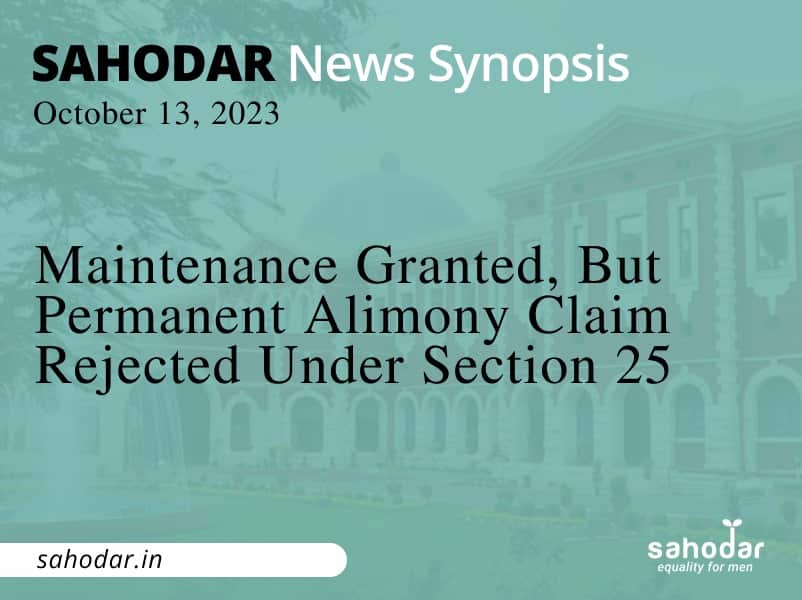The High Court in Jharkhand overturned the family court’s ruling, which had dismissed the appellant’s application for permanent alimony under Section 25 of the Hindu Marriage Act. The High Court found fault with the family court’s decision, asserting that it inadequately considered crucial factors, including the social status of the parties involved, the testimonies presented during the trial, the financial capacity of the appellant, and other relevant considerations prescribed under Section 25.
Background:
The appellant sought an appeal against the family court’s judgment, which had granted the appellant’s application under Sections 13(ia) and 13(ib) of the Hindu Marriage Act, 1955, while simultaneously denying the plea for permanent alimony under Section 25.
Appellant’s Position:
Counsel for the appellant argued that an application requesting Rs. 40,000 as permanent alimony had been submitted during the trial but was not adequately deliberated upon. The rejection of the permanent alimony claim was primarily premised on the appellant’s existing receipt of Rs. 10,000 per month as maintenance.
Respondent’s Position:
Counsel for the respondent contended that the respondent alone bore the responsibility for the financial support of both children and reported a monthly income of only Rs. 14,000. It was highlighted that the appellant was already receiving Rs. 10,000 per month in maintenance.
Court’s Observations:
The court noted that the determination of permanent alimony hinges upon a multifaceted evaluation of various factors. The court critiqued the family court’s cursory examination of this matter, emphasizing the lack of consideration given to the social standing of the parties, the evidence presented by witnesses during the trial, the financial capability of the appellant, and other pertinent factors delineated within Section 25 of the Hindu Marriage Act, 1955.
The court underscored that the calculation of permanent alimony necessitates ensuring that the maintenance sum awarded to the wife allows her to maintain a reasonable standard of living in accordance with her social status and the manner of life she was accustomed to when residing with her husband. Concurrently, the sum awarded must not be disproportionately high to the detriment of the other party’s living conditions.
In the present case, the family court primarily centered its decision on the respondent’s counter-arguments and did not sufficiently take into account elements such as the social status of the appellant, the appellant’s financial means (as the custodian of their son), and other pertinent considerations crucial in determining eligibility for permanent alimony. The mere fact that the appellant was already receiving Rs. 10,000 per month in maintenance should not serve as the sole basis for the rejection of the permanent alimony claim. If the court concludes that the appellant is not entitled to permanent alimony, it must provide a comprehensive and well-reasoned rationale rather than issuing a terse denial.
Court’s Final Verdict:
Therefore, the court partially allowed the appeal and set aside the contested judgment.

